Restoring the American Dream Updated
 *the American Dream/Audio How did it happen that over the course of the last thirty years, America has gone from being the land of economic opportunity, from being the land where almost everyone could aspire to become a capital owner, to being a country where wages have declined, jobs have disappeared, and job and ownership expectations have become greatly diminished? The answer lies in the fact that over the last thirty years, we have failed to create sufficient incentives for capital formation, and we have failed to create sufficient incentives for broadening the ownership of capital by average Americans. What is the American Dream? The term was first used by James Truslow Adams in his book the Epic of America which was written in 1931. He states: "The American Dream is "that dream of a land in which life should be better and richer and fuller for everyone, with opportunity for each according to ability or achievement. It is a difficult dream for the European upper classes to interpret adequately, and too many of us ourselves have grown weary and mistrustful of it. It is not a dream of motor cars and high wages merely, but a dream of social order in which each man and each woman shall be able to attain to the fullest stature of which they are innately capable, and be recognized by others for what they are, regardless of the fortuitous circumstances of birth or position." *RESTORING THE AMERICAN DREAM *Rising Tides,Leaky Boats  A Wealth of Nations and the Fallacy of Capitalism. A simple economic fact that is always ignored and overlooked by economic theorists, and for good reason too since it renders their musings mostly invalid, concerns the fact that wealth, no matter how it is measured, does not exist as an infinite quantity. Since the total aggregate of all wealth available for distribution among the world's population is finite, economic equality and economic justice are goals that can never be achieved. Any economic theory that argues to the contrary, as capitalism always does for instance, is quite simply a lie. The idea that a free-market economy is a good thing for people and nations to embrace, for instance, where everyone will be rewarded in kind for the industry and enterprise they bring to the marketplace, is simply invalid and untrue. 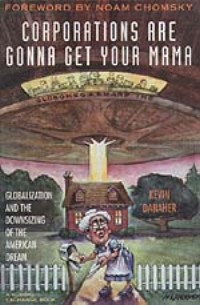 Inequality is getting worse: fewer and fewer large corporations own more of the world's productive resources while millions of people are unable to sustain their families. Many of us have a gut feeling that the global economy has gone awry. We would do well to trust our feelings. The globalization of the economy undermines the quality of life in the United States. The decline in our standard of living can be seen in numerous areas. Two-thirds of the American people say the American Dream is becoming harder to achieve, especially for young families, and they point to financial insecurity and poor quality public education as the most significant barriers, according to a new survey released today by the National League of Cities (NLC). *Two Thirds Feel American Dream Harder to Achieve *Globalization and the Downsizing of the American Dream *A Wealth of Nations and the Fallacy of Capitalism 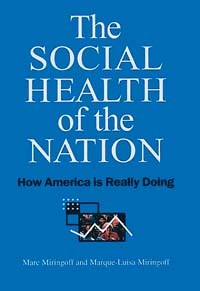 How badly do we lag? Earlier this year, two Australian analysts, Rodney Tiffen and Ross Gittings, compared the world’s top 18 developed nations on over 200 different social measures. Among the world’s 18 top nations, they found, we in the United States rank last in infant mortality, last in unemployment benefits, and last in spending for job training. We even rank last on surviving to age 60. Most troubling of all, we rank dead last on child poverty. An American child is three times more likely to live in poverty as a French child, four times more likely than a Danish child, and eight times more likely than a child in Sweden. What’s going on here? Nations like Denmark and Sweden, it turns out, are simply investing far more in their social safety nets than we Americans do, enough more to reduce poverty in their societies by over 70 percent. In the United States, our tattered safety net reduces poverty by only 28 percent. In other words, our safety net leaves three-quarters of our poor people poor. *Wealth only does good when you spread it around 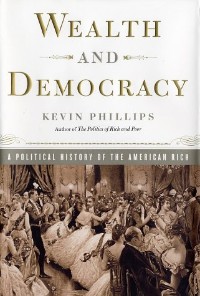 Wealth Distribution Statistics The United Nations Development Program (UNDP) reported in 1998 that the world's 225 richest people now have a combined wealth of $1 trillion. That's equal to the combined annual income of the world's 2.5 billion poorests people. *Wealth Distribution In the 1980’s Ronald Reagan ushered in a new era in American economics as he cut the top tax bracket from 70% down to 50% and then down again to 28%. In order to get support for doing this from the people, and also from politicians, a very crafty set of lies were produced. As David Stockman, then Reagan’s budget director, put it: giving small tax cuts across the board to all brackets was simply a “Trojan Horse” that was used to get approval for the huge top tax bracket cuts. “Trickle-Down” was a term used by Republicans that meant giving tax cuts to the rich. *Trickle Down” economics was a Trojan Horse  Top 2.7 Million People Have as Much Income as Bottom 100 Million The after-tax income gaps between those with the highest incomes and other Americans have widened sharply since 1977 and are projected in 1999 to reach their widest point in recent decades. *Record Level Income Gaps You need only do three things to avoid poverty in this country: finish high school, marry before having a child, and produce the child after the age of 20. Only 8 percent of families who do this are poor; 79 percent of those who fail to do this are poor.  Where are we headed? And why? Fannie Mae—originally the Federal National Mortgage Association, it now calls itself by its chummy Wall Street nickname—traces its origins to the credit crunch of the Great Depression, and government efforts to help families borrow to buy a home.Alan Greenspan. On Thursday February 17th, he told Congress that by letting these two agencies grow unchecked, “We are placing the total financial system of the future at a substantial risk.” *Building the American dream…or nightmare? On the day that his factory shut down in 1990, Karel Hoogenraad faced two dilemmas. One was how to support a family without his good mechanic's paycheck. The other was making his four sons understand how the economy could toss a person on the street after 18 years of hard and loyal work. 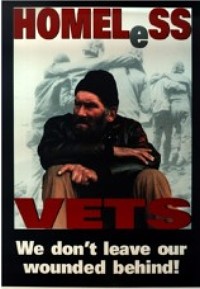 *The American Dream is for people who can afford it A VETERANS NIGHTMARE ... IS THIS WHAT I FOUGHT FOR??? HAVE YOU BEEN DENIED BENEFITS.... INSURANCE FRAUD, ACCOMMODATION.... UNFAIR LABOR & DISABILITY LAWS.... DISCRIMINATION, DISABILITY & TERMINATION *A Veterans Nightmare *Wealth and Social Health of America Many analysts have attributed the U.S.'s high per capita income to higher U.S. productivity -- that is, output per worker. The OECD report found, however, that relative to other industrial countries, higher U.S. incomes are "largely due to differences in total hours worked per capita," not differences in output. In other words Americans work more hours than anybody else, not that they are more productive. The theory is that, as computers allow us all to produce more with less work, our incomes will continue to grow and our standard of living will rise. But there’s a darker side to productivity that some economists are now beginning to look at more closely. Simply put: Are we all really working smarter? Or just a lot harder?  *The darker side of the rise in U.S. productivity *Working Harder *We're Working Harder Redressing the wealth imbalance is not just a question of fairness. Wealth has taken on greater significance in these times of rapid economic change. Human capital in the form of education has become a prerequisite for access to the middle class. In a world of downsizings, layoffs, and frequent job changes, both financial and human capital wealth are necessary to provide workers with the flexibility to navigate transitions. *Forty Acres and a Sheepskin *Average American Is Being Left Behind ... consuming is part of the problem. Income (the solution) leads to consumption practices that exacerbate and reproduce class and social inequalities, resulting in-and perhaps even worsening-an unequal distribution of income. Second, the system is structured such that an adequate income is an elusive goal.  ... attempts to achieve equality or adequacy of individual incomes without changing consumption patterns will be self-defeating. *Why Americans want so much more than they need Get ready for the biggest one-year loss of wealth in world history...it's already begun.10 years worth of prosperity will immediately disappear in this disaster 1,000 times bigger than Enron - and a million times more devious... Get ready for the biggest one-year loss of wealth in world history...it's already begun.10 years worth of prosperity will immediately disappear in this disaster 1,000 times bigger than Enron - and a million times more devious ... *The Day The Buying Stopped 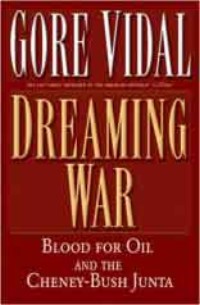 We have no political parties. We've never had much of them --I mean the Democrats, the Republicans. We have one party --we have the party of essentially corporate America. It has two right wings, one called Democratic, one called Republican. So in the absence of politics, with a media that is easy to manipulate and, in the hands of very few people with interests in wars and oil and so on, I don't see how you get the word out, but one tries because there is nothing else to be done. *It's Time to Take Action  The Key Ingredient New information often changes perspective. Consider Japan with a population of 127 million people, and the United States with 250 million people. Which country should be more productive? A close look may change your response. *JAPANESE MAY SURPASS AMERICAN PRODUCTIVITY The key factor going largely unheeded is the rise of creativity as the central force in our economy. Without great waves of new products, technologies and industries, our economy would barely have grown since the dark days of the 1970s and early 1980s. Without constant innovation none of our industries will avoid the grim fate that befell factories and offices across the United States. *Key Factor 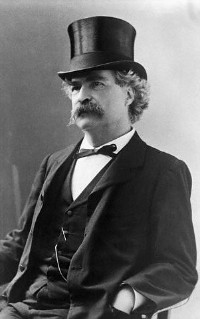 Other References .... *Benjamin Franklin A Modest Enquiry into the Nature and Necessity of Paper Currency (1729) *part of capitalism's manic-depressive boom and bust cycle is healthy *THE ILLUSION OF HOUSEHOLD WEALTH *Economic Recovery Tilts To Highest Income Americans *Changing Conceptions of the American Dream  Other Views .... Dream On America/British View The U.S. Model: For years, much of the world did aspire to the American way of life. But today countries are finding more appealing systems in their own backyards. *Dream On America *The anti-American dream .... we feel we have the same risk in the United States of being picked up without cause by the police. *THE FRACTURED AMERICAN DREAM/PDF format  Freedom & Democracy Everywhere Labels: Armageddon, Bible Prophecy, Bush Brotherhood of Death  Stumble It! Stumble It! |















































Comments on "Restoring the American Dream Updated"
post a comment